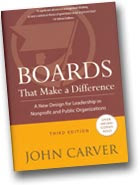
UNORTHODOX, week 2
Baptism/Communion
We believe and practice two ordinances—(1) Water Baptism by Immersion after repenting of one's sins and receiving Christ's gift of salvation, and (2) Holy Communion (the Lord's Supper) as a symbolic remembrance of Christ's suffering and death for our salvation.
Ordinances are outward rites or symbolic observances commanded by Jesus. It is an outward sign of an inward work, or a visible sign of an invisible work of grace.
Ordinance #1
Baptism: (Baptizo) means to completely submerge or immerse.
2 Cor. 2:15
“Therefore, if anyone is in Christ, the new creation has come: The old has gone, the new is here!”
What you need to know about baptism...
1. Jesus did it- Mt. 3:13-17
2. Peter declared it- Acts 2:38,41
3. Early Church in the Bible followed it- Acts 8:12, 36-38; 9:18; 10:47
4. Taught in the New Testament Letters- Rom. 6:3; 1 Cor. 10:2;
Gal. 3:27
1. Required in Scripture- Mk. 16:16; Ro. 6:3
2. Represents dying to self and being raised to newness of life- Ro. 6:4
3. Reveals that we have been united with Christ- Ro. 6:5,6
4. Requests a life-long commitment- Ro. 6:5-8
Ordinance #2
The second ordinance is Holy Communion or also called the Lord’s Supper. The first observance of Communion took place on another religious holiday- the Jewish feast of Passover. The Passover meal included telling the story of the Passover, the event that took place under Moses’ leadership while in Egypt.
The Israelites were to place the blood of a spotless lamb on the doorposts of their doors. So when the angel of death came that night, he would by-pass family. The blood represented a covering. Jesus was celebrating this with his disciples giving them a foretaste of what would happen. He would shed His blood as a covering for our sins. Communion is a memorial of His atoning death.
Below are selected passages used in our last service...
The Bible says “when evening came, Jesus was reclining at the table with the Twelve” (Mt. 26:20). Then Jesus says, “I have eagerly desired to eat this Passover with you before I suffer. For I tell you, I will not eat it again until it finds fulfillment in the Kingdom of God” (Lk. 22:15,16).
He then begins to predict His betrayal by saying, “I am not referring to all of you; I know those I have chosen. But this is to fulfill this passage of Scripture, ‘He who shared my bread has turned against me” (Jn. 13:18). “Very truly I tell you, one of you is going to betray me” (Jn. 13:21).
The Disciples stare at one another for a while, then Peter motions to John to come closer saying, ‘Ask him which one he means’” (Jn. 13:24). John leans over to Jesus and says, “Lord, who is it? Jesus answered, “It is the one to whom I will give this piece of bread…dipping the piece of bread, he gave it to Judas” (Jn. 13:25,26).
Then Jesus took the bread, lifted it up, gave thanks and broke it and gave it to the disciples. “This is my body given for you; do this in remembrance of me” (Lk. 22:19)."
“Then he took a cup, and when he had given thanks, he gave it to them, saying, “Drink from it, all of you. 28 This is my blood of a new covenant, which is poured out for many for the forgiveness of sins. 29 I tell you, I will not drink from this fruit of the vine from now on until that day when I drink it new with you in my Father’s kingdom.”







